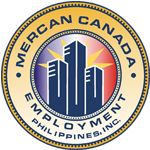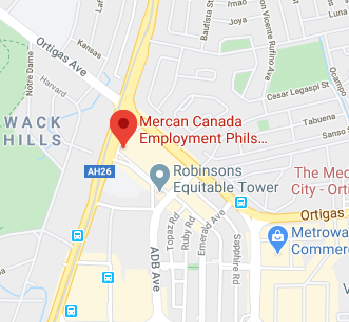Learning moments – LMIA for Express Entry – strategies for maximizing points
Brought to you week by week by Chantal Desloges and her fabulous team.
Hello fellow practitioners! This week’s question deals with obtaining LMIAs for Express Entry Applications and strategies for maximizing points.
Â
QUESTION:
“I have one question regarding Express Entry and LMIA.
Here is a potential client. He has more than two years work experience in Canada and another three years work experience in his home country. His CELPIP scores are in between 8 to 9. His spouse can earn 4 or 5 IELTS scores. He is reaching 45 years in few months. Since he has Canadian education (1 year college certificate), he can earn additional points. So in the end, his CRS score is around 420. It is about 50 points short, considering the current EE score trends: 470 or up.
The current situation he is facing is his work permit (PGWP) is expiring soon. However, he may find a restaurant which can give a job offer supported by LMIA. Please note that he has worked as Chemical process operator (NOC 9232) for over 5 years (2+3). If he works as a cook (NOC 6322), it is a completely different NOC code.
Question 1: Can he get earn additional 50 point even if the two jobs NOC are different and he does not have any previous work experience as a cook?
Question 2: Can he apply for EE right away once he got LMIA without at least one year work experience as a cook? or Does he have to work for one year as a cook and then he can apply?
Question 3: If he can apply right away, should the primary occupation be 6322 (Cook), not 9232 (Operator)?”
Â
ANSWER:
Question 1:
As I am sure you aware, Applicants who have an LMIA to support their application can earn an additional 50 points under CRS for most jobs, or 200 points for some senior managerial jobs. In your client’s case, both of the NOC categories that you mentioned are not NOC 00 jobs, and thus, your client would obtain an additional 50 points instead of 200 points for the job offer supported by the LMIA.
Whether or not your client’s job offer supported by an LMIA needs to be in in his “primary occupation” depends on which program he qualifies for under EE. If he is applying through Federal Skilled Workers (“FSW”), the job offer does not necessarily need to be in the same field as his primary occupation. The “primary occupation” means the job that he has experience in, and wants to base his immigration application on if he is invited to apply.[1] As such, if your client is applying through EE as a chemical process operator (NOC 9232), then he could theoretically still get the 50 points for a job offer as a cook (6322).
However, there is a more foundational problem here. If your client has no work experience as a cook, it is likely that an Officer assessing his application will refuse it on the basis that job offer is not bonafide. Remember, the employer would have to advertise for that cooking job, and in his/her advertisement, there would presumably be an experience-based requirement that your client does not meet.
If your client is applying through Federal Skilled Trade (“FST”), by contrast, the job offer does need to be in the same field as his primary occupation.
Question #2:
The answer to your question depends on which program your client is applying through. Express Entry manages applications for three different economic immigration programs: (1) Federal Skilled Worker Program (“FSW”), (2) Federal Skilled Trades Program (“FST”), and (3) Canadian Experience Class (“CEC”).
If you look at the requirements for these three programs as per the Immigration and Refugee Protection Regulations (“IRPR”), you will find that FSW requires the work experience to be in the specific occupation identified by the foreign national in their application as their primary application. Similarly, FST requires the work experience to be in Skill Level B groups that are specifically set out in IRPR. CEC, by contrast, is much broader than both FSW and FST, as it permits the work experience to be in any occupations that are listed as Skill Type 0, Skill Level A, or Skill Level B.
The relevant portions of IRPR with respect to the nature of the work experience read as follows:
Federal Skilled Workers Class
75(2)Â A foreign national is a skilled worker if
(a) within the 10 years before the date on which their application for a permanent resident visa is made, they have accumulated, over a continuous period, at least one year of full-time work experience, or the equivalent in part-time work, in the occupation identified by the foreign national in their application as their primary occupation, other than a restricted occupation, that is listed in Skill Type 0 Management Occupations or Skill Level A or B of the National Occupational Classification matrix;
…
Canadian Experience Class
87.1(2)Â A foreign national is a member of the Canadian experience class if
(a) they have acquired in Canada, within the three years before the date on which their application for permanent residence is made, at least one year of full-time work experience, or the equivalent in part-time work experience, in one or more occupations that are listed in Skill Type 0 Management Occupations or Skill Level A or B of the National Occupational Classification matrix, exclusive of restricted occupations; and
…
Federal Skilled Trades Class
87.2(1) In this section, skilled trade occupation means an occupation, unless the occupation has been designated a restricted occupation by the Minister, in the following categories listed in Skill Level B of the National Occupational Classification matrix:
(a)Â Major Group 72, industrial, electrical and construction trades;
(b)Â Major Group 73, maintenance and equipment operation trades;
(c)Â Major Group 82, supervisors and technical occupations in natural resources, agriculture and related production;
(d)Â Major Group 92, processing, manufacturing and utilities supervisors and central control operators;
(e)Â Minor Group 632, chefs and cooks; and
(f)Â Minor Group 633, butchers and bakers.[2] (Emphasis added)
In your client’s case, if he is applying as a cook (NOC 6322) or as chemical process operator (NOC 9232), and has no work experience in Canada, then his application through EE will be considered under either the FSW or FST category.
If applying under FST, your client will need to have the requisite two years of full-time work experience, either as a cook (NOC 6322) or as a chemical process operator (NOC 9232), to qualify for PR under FST. He will not be able to apply until he has this experience. Your client will also need to have a valid job offer supported by an LMIA in the “Primary Occupation” under which he is applying.
If applying under FSW, by contrast, your client will only need one year of full-time work experience in the “Primary Occupation” under which he is applying, and would not necessarily need a job offer supported by an LMIA if he otherwise met the points threshold. Additionally, as previously mentioned, he could technically obtain a job offer in a different field, though his application would likely be refused for the reasons previously mentioned.
Â
Question 3:
In your client’s case, since he has no work experience in Canada, and no work experience as a cook more generally, then he would be restricted to applying through either FSW or FST as a chemical process operator if he wants to make his application right away.
[1] Immigration, Refugee, and Citizenship Canada, “Work experience and job offers,” online: https://www.cic.gc.ca/english/helpcentre/questions-answers-by-topic.asp?st=29.2
[2] Immigration and Refugee Protection Regulations, SOR/2002-227, online: https://laws-lois.justice.gc.ca/eng/regulations/sor-2002-227/



